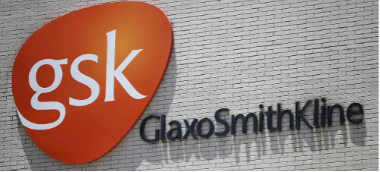Domestic TCE polyclonal antibodies are “surging”
November 2, 2024
Source: drugdu
 234
234
 MNCs are hunting for domestic molecules and have already involved the field of TCE polyclonal antibodies. On October 29, GlaxoSmithKline announced the acquisition of Enmu Bio's CD19 and CD20 targeted T cell engager CMG1A46, including a $300 million advance payment and $550 million in potential milestone payments. Not long ago in August, Merck also bought Tongrun Bio's CD3xCD19 bispecific antibody CN201 with a down payment of $700 million and a milestone payment of $600 million. The direction of the giants is also relatively consistent: betting on the autoimmune market.
MNCs are hunting for domestic molecules and have already involved the field of TCE polyclonal antibodies. On October 29, GlaxoSmithKline announced the acquisition of Enmu Bio's CD19 and CD20 targeted T cell engager CMG1A46, including a $300 million advance payment and $550 million in potential milestone payments. Not long ago in August, Merck also bought Tongrun Bio's CD3xCD19 bispecific antibody CN201 with a down payment of $700 million and a milestone payment of $600 million. The direction of the giants is also relatively consistent: betting on the autoimmune market.
At present, the core "battlefield" of TCE polyclonal antibodies is tumors. TCE polyclonal antibodies are relatively special. One end (or two ends) is connected to TAA (tumor-associated antigen) to locate tumor cells, and the other end is connected to the CD3 epitope of T cells to activate T cells and exert the tumor-killing effect of T cells.
In the field of hematological tumors, TCE bispecific antibodies have continued to advance. Currently, a total of 7 TCE bispecific antibody products have been approved for marketing, covering targets such as BCMA, GPRC5D, CD20 and CD19, and have been approved for multiple hematological tumor indications such as multiple myeloma and diffuse large B-cell lymphoma. The core of TCE multispecific antibodies' ability to advance from hematological tumors to autoimmunity is that its mechanism can theoretically benefit patients with various autoimmune diseases such as neuroimmunity (multiple sclerosis MS, myasthenia gravis gMG), rheumatism and immunity (systemic lupus erythematosus SLE, Sjögren's syndrome, etc.) and kidney disease (lupus nephritis LN) by deeply clearing B cells.
Among MNCs, Roche's CD20/CD3 bispecific antibodies and Amgen's BCMA/CD3 bispecific antibodies have successively carried out clinical trials for autoimmune indications. This also means that TCE multispecific antibodies may open up the vast market space of autoimmunity. It is under this logic that more MNCs are hunting for domestic molecules, hoping to tap the potential of TCE multispecific antibodies in the autoimmune market.
CMG1A46 was originally a molecule for treating tumors. CMG1A46 is a trispecific antibody for T cell Engager targeting CD3, CD19 and CD20. At the annual meeting of the American Society of Hematology held in December 2020, Enmu Biotech published the preclinical research data of CMG1A46 for non-Hodgkin's lymphoma in the form of an oral report. In preclinical studies, CMG1A46 showed rapid and deep B cell depletion in blood and tissues, which may lead to more lasting responses in patients.
However, GlaxoSmithKline is more eager to develop the potential of CMG1A46 in the autoimmune market. The core reason is that GlaxoSmithKline believes that CMG1A46 has characteristics in molecular design: high affinity for CD19 and CD20-positive B cells, low affinity for CD3, which can reduce the toxicity commonly associated with TCE. GlaxoSmithKline pointed out that preclinical studies have shown "rapid and deep B cell depletion in blood and tissues, which may lead to more lasting responses in patients."
For this reason, GlaxoSmithKline has high hopes for this molecule, hoping to use CMG1A46 for B cell-driven autoimmune diseases such as SLE and LN, and potentially expand to related autoimmune diseases. Although it is still unknown whether GlaxoSmithKline's expectations will be successful, given the large potential for exploration, the popularity of TCE polyclonal antibodies will continue to rise, which is an inevitable event.
https://mp.weixin.qq.com/
By editorRead more on
- Gan & Lee Pharmaceuticals’ new PROTAC drug GLR2037 tablets have been approved for clinical trials to enter the field of prostate cancer treatment March 3, 2026
- AideaPharmaceuticals plans to raise no more than 1.277 billion yuan through a private placement to focus on the global clinical development of innovative HIV drugs March 3, 2026
- Giant Exits! Its Star Business Acquired March 3, 2026
- Focusing on cardiovascular and cerebrovascular diseases! OpenMediLead Medical Intelligence Dual Engines Launch Internal Testing, Connecting Drug Development and Clinical Diagnosis in a Closed Loop March 3, 2026
- Innovent Biologics Announces Approval of New Indication for BTK Inhibitor “Pitubrutinib” in China March 3, 2026
your submission has already been received.
OK
Subscribe
Please enter a valid Email address!
Submit
The most relevant industry news & insight will be sent to you every two weeks.



